Related Research Articles

Freedom of religion or religious liberty, also known as freedom of religion or belief (FoRB), is a principle that supports the freedom of an individual or community, in public or private, to manifest religion or belief in teaching, practice, worship, and observance. It also includes the right not to profess any religion or belief or "not to practise a religion".

The Maryland Toleration Act, also known as the Act Concerning Religion, was the first law in North America requiring religious tolerance for Christians. It was passed on April 21, 1649, by the assembly of the Maryland colony, in St. Mary's City in St. Mary's County, Maryland. It created one of the pioneer statutes passed by the legislative body of an organized colonial government to guarantee any degree of religious liberty. Specifically, the bill, now usually referred to as the Toleration Act, granted freedom of conscience to all Christians. Historians argue that it helped inspire later legal protections for freedom of religion in the United States. The Calvert family, who founded Maryland partly as a refuge for English Catholics, sought enactment of the law to protect Catholic settlers and those of other religions that did not conform to the dominant Anglicanism of Britain and her colonies.
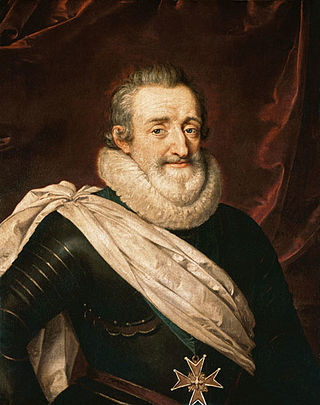
The Edict of Nantes was signed in April 1598 by King Henry IV and granted the minority Calvinist Protestants of France, also known as Huguenots, substantial rights in the nation, which was predominantly Catholic.
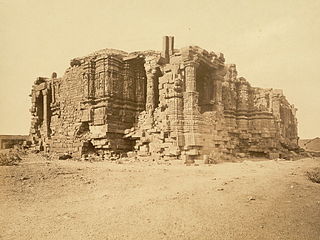
Religious intolerance is intolerance of another's religious beliefs, practices, faith or lack thereof.
The separation of church and state is a philosophical and jurisprudential concept for defining political distance in the relationship between religious organizations and the state. Conceptually, the term refers to the creation of a secular state and to disestablishment, the changing of an existing, formal relationship between the church and the state. The concept originated among early Baptists in America. In 1644, Roger Williams, a puritan minister and founder of the state of Rhode Island and The First Baptist Church in America, was the first public official to call for "a wall or hedge of separation" between "the wilderness of the world" and "the garden of the church." Although the concept is older, the exact phrase "separation of church and state" is derived from "wall of separation between Church & State," a term coined by Thomas Jefferson in his 1802 letter to members of the Danbury Baptist association in the state of Connecticut. The concept was promoted by Enlightenment philosophers such as John Locke.
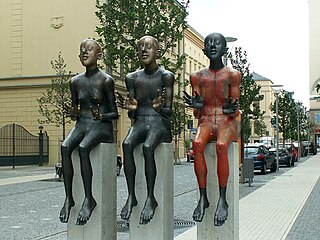
Religious tolerance or religioustoleration may signify "no more than forbearance and the permission given by the adherents of a dominant religion for other religions to exist, even though the latter are looked on with disapproval as inferior, mistaken, or harmful". Historically, most incidents and writings pertaining to toleration involve the status of minority and dissenting viewpoints in relation to a dominant state religion. However, religion is also sociological, and the practice of toleration has always had a political aspect as well.

An edict of toleration is a declaration, made by a government or ruler, and states that members of a given religion will not suffer religious persecution for engaging in their traditions' practices. Edicts may imply tacit acceptance of a state religion.

The Catholic Church in Sweden is part of the worldwide Catholic Church in communion with the Pope in Rome. It was established by Archbishop Ansgar in Birka in 829, and further developed by the Christianization of Sweden in the 9th century. King Olof Skötkonung is considered the first Christian king of Sweden.

Anders Chydenius was a Swedish Lutheran priest and a member of the Swedish Riksdag, and is known as the leading classical liberal of Nordic history.

The Flushing Remonstrance was a 1657 petition to Director-General of New Netherland Peter Stuyvesant, in which some thirty residents of the small settlement at Flushing requested an exemption to his ban on Quaker worship. It is considered a precursor to the United States Constitution's provision on freedom of religion in the Bill of Rights.
The Catholic Church in the Nordic countries was the only Christian church in that region before the Reformation in the 16th century. Since then, Scandinavia has been a mostly non-Catholic (Lutheran) region and the position of Nordic Catholics for many centuries after the Reformation was very difficult due to legislation outlawing Catholicism. However, the Catholic population of the Nordic countries has seen some growth in the region in recent years, particularly in Norway, in large part due to immigration and to a lesser extent conversions among the native population.

The Patent of Toleration was an edict of toleration issued on 13 October 1781 by the Habsburg emperor Joseph II. Part of the Josephinist reforms, the Patent extended religious freedom to non-Catholic Christians living in the crown lands of the Habsburg monarchy, including Lutherans, Calvinists, and the Eastern Orthodox. Specifically, these members of minority faiths were now legally permitted to hold "private religious exercises" in clandestine churches.

The 1782 Edict of Tolerance was a religious reform of Emperor Joseph II during the time he was emperor of the Habsburg monarchy as part of his policy of Josephinism, a series of drastic reforms to remodel Austria in the form of the ideal Enlightened state. Joseph II's enlightened despotism included the Patent of Toleration, enacted in 1781, and the Edict of Tolerance in 1782. The Patent of Toleration granted religious freedom to the Lutherans, Calvinists, and Serbian Orthodox, but it was not until the 1782 Edict of Tolerance that Joseph II extended religious freedom to the Jewish population.
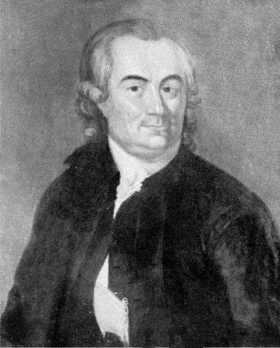
Aaron Isaac was a Jewish seal engraver and merchant in haberdashery. He came from Swedish Pomerania, a German-speaking area then part of the Swedish Empire, during the reign of Gustav III, and was persuaded to come to Sweden where there were no seal engravers at the time. He did this on the condition that he could bring with him at least ten Jews, in order to have a minyan (quorum) for prayer. His native language was Yiddish.
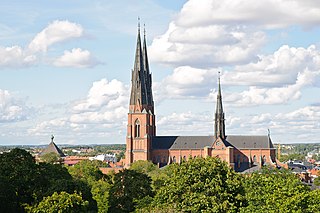
Religion in Sweden has, over the years, become increasingly diverse. Christianity was the religion of virtually all of the Swedish population from the 12th to the early 20th century, but it has rapidly declined throughout the late 20th and early 21st century.
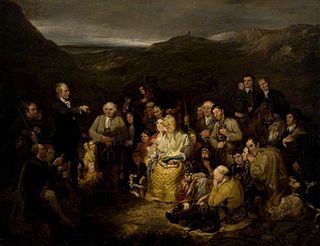
A conventicle originally meant "an assembly" and was frequently used by ancient writers to mean "a church." At a semantic level, conventicle is a Latinized synonym of the Greek word for church, and references Jesus' promise in Matthew 18:20, "Where two or three are met together in my name."

Dissenter Acts were laws, enacted by the King of Sweden with the consent of the Swedish Parliament, which gave nonconformists who wanted to leave the then established Church of Sweden the right to do so, provided that the dissenters then joined one of the state-approved denominations. The first such edict was decreed in 1860 by Karl XV and the Ståndsriksdag; the second one in 1873 by Oscar II and the reorganized bicameral Riksdag. Neither the Ståndsriksdag, divided into four Estates, nor the newer Riksdag could be said to be truly democratic, though, as the suffrage was restricted to males who owned property. The 1873 edict remained in force until the 1951 Religious Freedom Act (religionsfrihetslag); the Church of Sweden remained the established state church until 2000.

The Conventicle Act was a Swedish law, in effect between 21 January 1726 and 26 October 1858 in Sweden and until 1 July 1870 in Finland. The act outlawed all conventicles, or religious meetings of any kind, outside of the Lutheran Church of Sweden, with the exception of family prayer or worship. The purpose was to prevent freedom of religion and protect religious unity, as such unity was regarded as important to maintain the control of the Crown over the public through the Church. The law only applied to Swedish citizens, while the religious freedom of foreigners was protected by the Tolerance Act.
Peter Spaak was a Swedish Protestant Reformer.
The Dissenter Act is a Norwegian law from 1845 that allowed Christian denominations other than the Church of Norway to establish themselves in the country. It was enacted on 16 July 1845, and remained in effect until it was replaced by the Act Relating to Religious Communities, etc. in 1969.
References
Notes
- ↑ Grimberg 1921, p. 81.
- ↑ Grimberg 1921, p. 82.
- 1 2 3 4 Grimberg 1921, p. 83.
Sources
- Grimberg, Carl (1921). Svenska folkets underbara öden (in Swedish). Vol. VII. Gustaf III:s och Gustav IV Adolfs tid 1772–1809. ISBN 9118534422 – via Project Runeberg.
- "Religionsfrihet". Nordisk familjebok . 1904–1926 – via Project Runeberg.
- Trolle Önnerfors, Elsa. "Den svenska religionsfriheten – tidslinje" (PDF). Swedish Agency for Support for Faith Communities. Lund University. Archived (PDF) from the original on 2021-04-13. Retrieved 2023-03-17.
